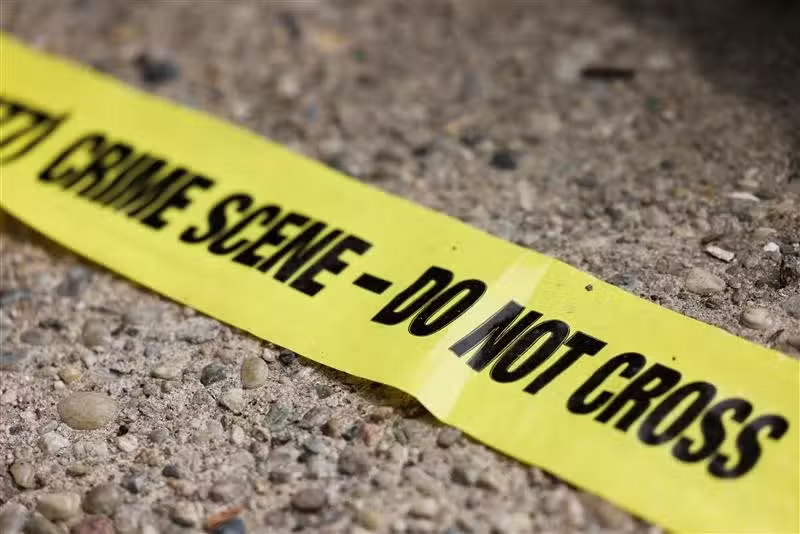(OSV News) — The Washington state attorney general’s office announced May 9 an investigation into whether the state‘s three Catholic dioceses used charitable funds to cover up allegations of child sex abuse by clergy.
Attorney General Bob Ferguson’s office said May 9 it issued subpoenas to the Archdiocese of Seattle, the Diocese of Spokane and the Diocese of Yakima, but alleged the Seattle Archdiocese “refused to cooperate.”
Ferguson filed a petition to enforce the subpoena in King County Superior Court, requesting a May 22 court date. Ferguson’s office said it does not typically comment on ongoing investigations, explaining that filing made their investigation public.
The Archdiocese of Seattle in a May 9 statement said it “welcomes this investigation because we have a shared goal of abuse prevention, healing for victims and transparency,” but said it was surprised by the announcement, as it has been “collaborating with the Attorney General’s legal team on the shared legal analysis, which is common for investigations like this.”
The Spokane and Yakima dioceses also pushed back in May 9 statements against Ferguson’s contentions, arguing that the church today is a leader in protecting children from abuse, and healing victims, and that a comprehensive review of how abuse was handled by Washington‘s public and faith institutions was more appropriate than singling out the Catholic Church.
The attorney general’s petition before the superior court states that his office is investigating “allegations that the Catholic Church has facilitated and attempted to cover up decades of pervasive sexual abuse of children by Church leaders in Washington State.”
Ferguson’s 30-page filing argues that for decades the church’s leadership in Washington state received unambiguous reports of sexual abuse and moved to cover up incidents its leaders knew was criminal.
In particular, the filing focuses on the case of then-Father Michael J. Cody, a priest about whom the Seattle Archdiocese began to receive allegations of serial sexual predation on young children by at least 1962, and who would serve in parishes for over 15 years. The filing cites correspondence indicating that church leaders knew his behavior could create not only a scandal but also “result in a penitentiary sentence at Walla Walla.” Instead, the priest was repeatedly transferred to new parishes, which the attorney general’s filing said “actually facilitated his access to additional victims” while allowing him to “avoid any consequences for his prior actions.”
Cody himself eventually admitted to having between 20-40 victims, nearly all of them girls between 8-12 years old, the filing reveals. But the attorney general points out that as late as 2004, “the very same year the (archdiocesan) Review Board urged the Church to increase transparency,” Seattle Archbishop Alex J. Brunett in correspondence with an abuse survivor about Cody “misrepresented and concealed the extent of the Archdiocese’s complicity in and support of sexual abuse, including its financial support for the abuser and his repeated transfers.” The following year Cody was finally removed from the priesthood, but continued to draw a stipend from the priest pension, according to the filing. (The late Archbishop Brunett headed the archdiocese from 1997 until his retirement in 2010.)
The attorney general’s filing argues that Catholic leaders’ actions to cover-up sexual abuse involved charitable funds and unlawfully violated their intended purpose. As such, the filing argues the attorney general has the right to investigate Washington‘s dioceses under the state‘s Charitable Trusts Act, and provide “evidence-backed assurances — not empty promises — that going forward, those trust funds will never be used to harm children.”
“Washingtonians deserve a public accounting of how the Catholic Church handles allegations of child sex abuse, and whether charitable dollars were used to cover it up,” Ferguson said in a statement May 9. “As a Catholic, I am disappointed the Church refuses to cooperate with our investigation. Our goal is to use every tool we have to reveal the truth, and give a voice to survivors. If you or a loved one have been impacted by clergy abuse, please contact my office.”
In it’s May 9 statement, the Archdiocese of Seattle also said that earlier this year it sought “a joint press conference to announce this investigation and share our sincere desire to cooperate so that we can transparently share information without divulging the privacy of victims and re-traumatizing them. The Attorney General’s Office denied this request, stating that they do not speak publicly about ongoing investigations.”
The archdiocese challenged some of the claims made by the attorney general’s press conference May 9 about the investigation, which it said were “inaccurate.”
“Specifically, there were comments made about how we are hiding victim stories and not meeting with victims ‘face-to-face’: The information in our files comes directly from victims and their families,” the archdiocese’s statement continued. “Given this, there is no effort to hide these victim stories from the victims themselves, as insinuated during the press conference. They know their story and what was shared with us.”
Its statement further said the archdiocese is “committed to transparency — but must do so in a way that does not retraumatize victims.”
The Archdiocese of Seattle has publicly identified 83 clergy members “as credibly accused” sex offenders, based on its own investigation, spanning decades as far back as the 1920s. According to its own data, known instances of sexual abuse of minors and vulnerable adults by church personnel peaked in 1975, with no reports of such behavior occurring since 2007. The vast majority — 99% — of reported incidents of abuse occurred prior to 1995.
A May 9 statement from the Diocese of Spokane also disputed the need for Ferguson’s subpoena of its records to achieve his goal of “sharing an account of the historic acts of abuse.”
“The litigation associated with the Chapter 11 process clearly revealed how the Diocese of Spokane dealt with all historic cases of sexual abuse. The Diocese of Spokane is unaware of any new cases of child sexual abuse,” the diocese’s statement said. “If someone has information to the contrary, contact law enforcement immediately.”
The diocese emphasized its “commitment to protecting children and vulnerable adults from acts of abuse” and added it “regularly reviews safe environment policies, procedures and protocols that are clearly communicated to the faithful throughout eastern Washington.”
A statement from the Diocese of Yakima said that the diocese had expressed willingness to work cooperatively with Ferguson and other public institutions and faith communities “for a thorough study of the history of abuse of minors, and how to effectively prevent it.”
However, the diocese said the attorney general appears to have declined its invitation for “a collaborative, constructive, and public process that could benefit all residents of Washington.” The diocese also maintained the attorney general’s office was making “extraordinary demands” that lacked a proper legal basis and ran afoul of state and federal constitutional protections.
The Yakima Diocese’s statement argued that since 2002, “the Roman Catholic Church in the United States, and the state of Washington, has been a leader in how to best protect children and youth from the societal disaster that sexual abuse has helped to create.”
“We report credible complaints promptly to law enforcement, cooperate in their investigations, and conduct our investigation if civil authorities decide not to proceed,” the statement said.
“The Catholic Church provides compassionate care to victims of sexual abuse, always supporting their rights to report as well as to seek financial compensation. This support sometimes is provided even before complaints are substantiated. We want victims — and indeed our society — to be made whole.”
The diocese argued that the focus on the Catholic Church, as opposed to a comprehensive review, “could contribute to a false sense that sexual abuse of minors is a ‘Catholic problem.'”
It said, “We cannot publicize everything in our records, however, to respect the privacy and confidentiality rights of, among others, both victims and falsely accused clergy. And so, we will vigorously assert our First Amendment rights.”
Ferguson, who is running for Washington governor as a Democrat, is the 23rd state attorney general to launch an investigation into the Catholic Church, according to his office.
By Kate Scanlon | OSV News







News & Commentary
State attorney general investigates Washington’s dioceses over sex abuse response
(OSV News) — The Washington state attorney general’s office announced May 9 an investigation into whether the state‘s three Catholic dioceses used charitable funds to cover up allegations of child sex abuse by clergy.
Attorney General Bob Ferguson’s office said May 9 it issued subpoenas to the Archdiocese of Seattle, the Diocese of Spokane and the Diocese of Yakima, but alleged the Seattle Archdiocese “refused to cooperate.”
Ferguson filed a petition to enforce the subpoena in King County Superior Court, requesting a May 22 court date. Ferguson’s office said it does not typically comment on ongoing investigations, explaining that filing made their investigation public.
The Archdiocese of Seattle in a May 9 statement said it “welcomes this investigation because we have a shared goal of abuse prevention, healing for victims and transparency,” but said it was surprised by the announcement, as it has been “collaborating with the Attorney General’s legal team on the shared legal analysis, which is common for investigations like this.”
The Spokane and Yakima dioceses also pushed back in May 9 statements against Ferguson’s contentions, arguing that the church today is a leader in protecting children from abuse, and healing victims, and that a comprehensive review of how abuse was handled by Washington‘s public and faith institutions was more appropriate than singling out the Catholic Church.
The attorney general’s petition before the superior court states that his office is investigating “allegations that the Catholic Church has facilitated and attempted to cover up decades of pervasive sexual abuse of children by Church leaders in Washington State.”
Ferguson’s 30-page filing argues that for decades the church’s leadership in Washington state received unambiguous reports of sexual abuse and moved to cover up incidents its leaders knew was criminal.
In particular, the filing focuses on the case of then-Father Michael J. Cody, a priest about whom the Seattle Archdiocese began to receive allegations of serial sexual predation on young children by at least 1962, and who would serve in parishes for over 15 years. The filing cites correspondence indicating that church leaders knew his behavior could create not only a scandal but also “result in a penitentiary sentence at Walla Walla.” Instead, the priest was repeatedly transferred to new parishes, which the attorney general’s filing said “actually facilitated his access to additional victims” while allowing him to “avoid any consequences for his prior actions.”
Cody himself eventually admitted to having between 20-40 victims, nearly all of them girls between 8-12 years old, the filing reveals. But the attorney general points out that as late as 2004, “the very same year the (archdiocesan) Review Board urged the Church to increase transparency,” Seattle Archbishop Alex J. Brunett in correspondence with an abuse survivor about Cody “misrepresented and concealed the extent of the Archdiocese’s complicity in and support of sexual abuse, including its financial support for the abuser and his repeated transfers.” The following year Cody was finally removed from the priesthood, but continued to draw a stipend from the priest pension, according to the filing. (The late Archbishop Brunett headed the archdiocese from 1997 until his retirement in 2010.)
The attorney general’s filing argues that Catholic leaders’ actions to cover-up sexual abuse involved charitable funds and unlawfully violated their intended purpose. As such, the filing argues the attorney general has the right to investigate Washington‘s dioceses under the state‘s Charitable Trusts Act, and provide “evidence-backed assurances — not empty promises — that going forward, those trust funds will never be used to harm children.”
“Washingtonians deserve a public accounting of how the Catholic Church handles allegations of child sex abuse, and whether charitable dollars were used to cover it up,” Ferguson said in a statement May 9. “As a Catholic, I am disappointed the Church refuses to cooperate with our investigation. Our goal is to use every tool we have to reveal the truth, and give a voice to survivors. If you or a loved one have been impacted by clergy abuse, please contact my office.”
In it’s May 9 statement, the Archdiocese of Seattle also said that earlier this year it sought “a joint press conference to announce this investigation and share our sincere desire to cooperate so that we can transparently share information without divulging the privacy of victims and re-traumatizing them. The Attorney General’s Office denied this request, stating that they do not speak publicly about ongoing investigations.”
The archdiocese challenged some of the claims made by the attorney general’s press conference May 9 about the investigation, which it said were “inaccurate.”
“Specifically, there were comments made about how we are hiding victim stories and not meeting with victims ‘face-to-face’: The information in our files comes directly from victims and their families,” the archdiocese’s statement continued. “Given this, there is no effort to hide these victim stories from the victims themselves, as insinuated during the press conference. They know their story and what was shared with us.”
Its statement further said the archdiocese is “committed to transparency — but must do so in a way that does not retraumatize victims.”
The Archdiocese of Seattle has publicly identified 83 clergy members “as credibly accused” sex offenders, based on its own investigation, spanning decades as far back as the 1920s. According to its own data, known instances of sexual abuse of minors and vulnerable adults by church personnel peaked in 1975, with no reports of such behavior occurring since 2007. The vast majority — 99% — of reported incidents of abuse occurred prior to 1995.
A May 9 statement from the Diocese of Spokane also disputed the need for Ferguson’s subpoena of its records to achieve his goal of “sharing an account of the historic acts of abuse.”
“The litigation associated with the Chapter 11 process clearly revealed how the Diocese of Spokane dealt with all historic cases of sexual abuse. The Diocese of Spokane is unaware of any new cases of child sexual abuse,” the diocese’s statement said. “If someone has information to the contrary, contact law enforcement immediately.”
The diocese emphasized its “commitment to protecting children and vulnerable adults from acts of abuse” and added it “regularly reviews safe environment policies, procedures and protocols that are clearly communicated to the faithful throughout eastern Washington.”
A statement from the Diocese of Yakima said that the diocese had expressed willingness to work cooperatively with Ferguson and other public institutions and faith communities “for a thorough study of the history of abuse of minors, and how to effectively prevent it.”
However, the diocese said the attorney general appears to have declined its invitation for “a collaborative, constructive, and public process that could benefit all residents of Washington.” The diocese also maintained the attorney general’s office was making “extraordinary demands” that lacked a proper legal basis and ran afoul of state and federal constitutional protections.
The Yakima Diocese’s statement argued that since 2002, “the Roman Catholic Church in the United States, and the state of Washington, has been a leader in how to best protect children and youth from the societal disaster that sexual abuse has helped to create.”
“We report credible complaints promptly to law enforcement, cooperate in their investigations, and conduct our investigation if civil authorities decide not to proceed,” the statement said.
“The Catholic Church provides compassionate care to victims of sexual abuse, always supporting their rights to report as well as to seek financial compensation. This support sometimes is provided even before complaints are substantiated. We want victims — and indeed our society — to be made whole.”
The diocese argued that the focus on the Catholic Church, as opposed to a comprehensive review, “could contribute to a false sense that sexual abuse of minors is a ‘Catholic problem.'”
It said, “We cannot publicize everything in our records, however, to respect the privacy and confidentiality rights of, among others, both victims and falsely accused clergy. And so, we will vigorously assert our First Amendment rights.”
Ferguson, who is running for Washington governor as a Democrat, is the 23rd state attorney general to launch an investigation into the Catholic Church, according to his office.
By Kate Scanlon | OSV News